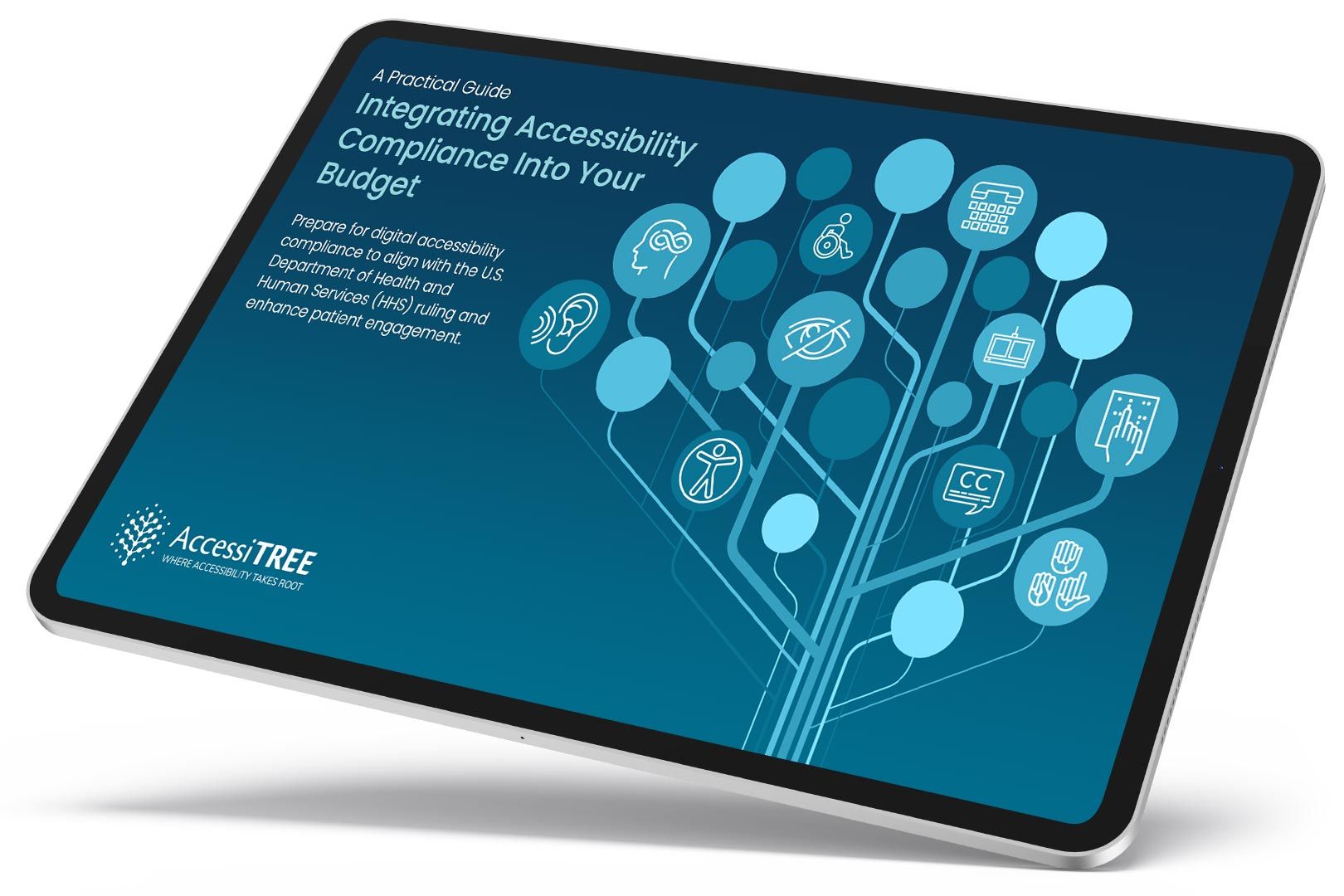
Why Mental Health Providers Must Prioritize WCAG Compliance for Their Websites
Mental health care accessibility is a critical concern, particularly for individuals with disabilities who experience mental health challenges at disproportionately higher rates. Ensuring WCAG compliance for mental health websites is not just about regulatory compliance—it’s about removing barriers that prevent people from accessing the care they need. A fully accessible website allows individuals with disabilities to schedule appointments, access online resources, and receive virtual care without obstacles.
By prioritizing accessibility, mental health providers can improve patient outcomes, enhance operational efficiency, and avoid legal risks. This article explores why WCAG compliance for mental health websites is essential and how providers can implement accessibility improvements.
The Increased Need for Mental Health Support Among Individuals with Disabilities
Research shows that people with disabilities experience mental health challenges at disproportionately higher rates than those without disabilities. WCAG compliance for mental health websites ensures that these individuals can access the support they need without barriers.
Key Statistics:
- Prevalence of Mental Distress: Adults with disabilities report frequent mental distress nearly five times as often as adults without disabilities.
- Blind and Low-Vision Individuals: People who are blind or have low vision experience depression at more than twice the rate of the general population. Many struggle to access mental health resources due to websites that lack proper screen reader compatibility and alternative text for images.
- Deaf and Partially Deaf Individuals: Studies show that individuals who are deaf or partially deaf are at higher risk of anxiety and depression. However, many online mental health resources fail to provide proper captions, transcripts, or sign language interpretation, limiting accessibility.
- Color Blindness and Visual Contrast Issues: Individuals with color blindness or low contrast sensitivity often find mental health websites difficult to navigate due to poor color contrast and inaccessible design choices.
These statistics highlight the urgent need for WCAG compliance for mental health websites, ensuring that digital resources are accessible to all individuals, regardless of their abilities.
Digital Barriers in Mental Health Websites
Despite the growing demand for accessible mental health services, many provider websites fail to meet WCAG compliance for mental health websites standards. This creates barriers that prevent individuals with disabilities from receiving the care they need.
Common Digital Accessibility Issues in Mental Health Websites
- Inaccessible Online Appointment Scheduling
- Forms without proper labeling, error identification, or keyboard navigation prevent individuals using screen readers or alternative input methods from booking appointments.
- Lack of Captions and Transcripts for Mental Health Resources
- Many providers offer telehealth and video-based therapy sessions without captions or transcripts, excluding individuals who are deaf or hard of hearing.
- Poor Website Contrast and Text Scaling Issues
- Websites that fail WCAG contrast guidelines make it difficult for individuals with low vision or color blindness to read content. Additionally, inflexible text scaling limits usability for people who rely on screen magnifiers.
- Confusing Website Navigation
- Complex site structures and poor UX design make it difficult for neurodivergent individuals and those with cognitive disabilities to find mental health services.
- Inaccessible Telehealth Platforms
- Many virtual therapy and telehealth platforms do not support screen readers, keyboard navigation, or alternative communication methods, excluding users with mobility and speech impairments.
Ensuring WCAG compliance for mental health websites eliminates these barriers, making essential mental health resources accessible to a broader audience.
The Benefits of WCAG Compliance for Mental Health Providers
1. Improved Patient Outcomes
When mental health providers remove digital accessibility barriers, more individuals can access care, leading to better health outcomes. Accessible websites help patients schedule appointments, access therapy materials, and engage in telehealth services without frustration.
2. Increased Operational Efficiency
Implementing WCAG compliance for mental health websites can reduce administrative burdens. When patients can independently navigate a website, book appointments, and access information, staff spend less time assisting with technical difficulties.
3. Reduced Legal Risks
Lawsuits related to digital accessibility are on the rise. Non-compliance with WCAG guidelines can result in legal action under the Americans with Disabilities Act (ADA) and the recent HHS ruling on healthcare accessibility. Proactively addressing accessibility helps providers avoid costly litigation.
4. Enhanced Reputation and Trust
Patients appreciate healthcare providers that prioritize inclusivity. A commitment to accessibility enhances a provider’s reputation, fostering trust within the disability community and improving patient satisfaction.
How AccessiTREE Helps Mental Health Providers Achieve WCAG Compliance
Ensuring WCAG compliance for mental health websites requires a structured approach. AccessiTREE specializes in helping mental health providers improve digital accessibility and meet compliance standards.
Our Digital Accessibility Solutions Include:
- Comprehensive Accessibility Audits: Identify WCAG 2.1 AA compliance gaps on your website.
- Website Remediation: Implement accessibility improvements, such as better contrast, screen reader compatibility, and keyboard navigation.
- Accessible Appointment Scheduling: Ensure forms are easy to complete for users with disabilities.
- Captioning and Transcripts: Improve video accessibility with captions and downloadable transcripts.
- Telehealth Accessibility Support: Make virtual therapy platforms compatible with assistive technologies.
Mental health providers have a responsibility to ensure that their services are accessible to all individuals, including those with disabilities. By prioritizing WCAG compliance for mental health websites, providers can remove digital barriers, improve patient experiences, and protect themselves from legal risks.
Partnering with AccessiTREE ensures that mental health providers meet WCAG standards while creating a more inclusive, user-friendly digital environment.
Making digital accessibility a priority today ensures that no one is excluded from receiving the mental health support they need. Contact us today to get started.

WCAG Compliance – Why Digital Accessibility Matters for Veterans’ Healthcare and Mental Well-Being
